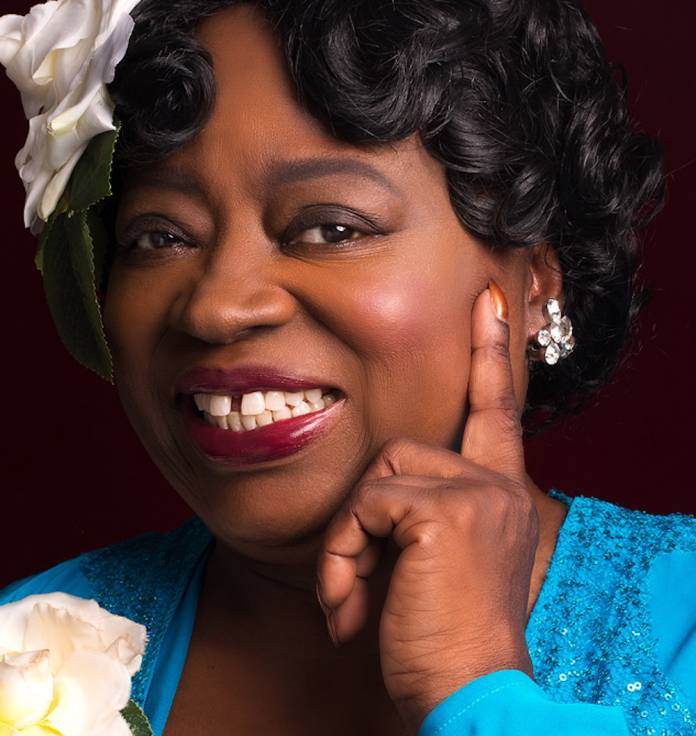ONSTAGE What most people know about Hattie McDaniel is that she was the first African American woman to win an Oscar, for her outstanding performance as Mammy in “Gone With the Wind.”
What most people don’t know is that because the 1939 Oscars were held in the segregated Ambassador Hotel, she was seated at a table at the back of the room, near the kitchen. It took a special request from producer David O. Selznick to allow McDaniel to sit at his table up front where she was able to join her co-stars Vivien Leigh and Clark Gable.
This, and many other lesser-known facts about the life of Hattie McDaniel, were revealed with great humor, pizzazz, and poignancy by Vickilynn Reynolds in her one-woman musical show Hattie McDaniel: What I Need You to Know, which just finished up a limited run at Southside Theater.
With an original score, enhanced with a couple of numbers by W.C. Handy (“St. Louis Blues”) and Charlie Chaplin (“Smile”), Reynolds became McDaniel in an engaging performance. The youngest daughter of former slaves, she was the 13th child in a family that excelled at music and theater. On her way to stardom, she had plenty of hard knocks (the early deaths both of her brother Otis, who encouraged her to sing and dance, and her beloved first husband; several husbands who were abusive or unfaithful; petty jealousies from other performers) and, always, the vicious color line that barred her from many stages despite her astonishing artistry.
Reynolds’ vocal range is nothing short of amazing—delivering with equal flair tender ballads, sultry jazz and humorous songs. Her “Dis, Dat, Deez, Dem, Dey” is a witty and clear-eyed look at the white entertainment industry’s arrogant expectations of black performers. And her gospel rendition of “Father Divine,” complete with rhythmic tambourine accompaniment, makes you want to get up and dance—or praise the Lord.
The script is frank about those who helped and hurt McDaniel along the way. Her supporters included Paul Robeson, Clark Gable and Bing Crosby. She credits writer Sherwood Schwartz with hiring her as the first African American woman to star in a network radio show, Beulah. The part had previously been played by a white man!
Reynolds also revealed those who tried to bring her down, including Walter White, then president of the NAACP, and the House Un-American Activities Committee, which hounded her along with other prominent black performers.
McDaniel was determined to play all her roles—even the confining ones of maids and servants—with dignity and compassion. As she stated in her Oscar acceptance speech, she had a profound desire to be a credit both to “her race and to the motion picture industry.”
Reynolds was thrilling to watch as she fluidly moves from exuberance to melancholy. The stage set by Byron Nora, who also directed the show, also transports you from a homey living room to a flashy nightclub with a minimum of fuss, and costumes by Mylette Nora do the same.
Though the production had only a weekend run at San Francisco’s Southside Theater, given the excellence of the performance—especially Reynolds’ powerful and elegant singing—hopefully, it will return. Try to catch it when it does.





